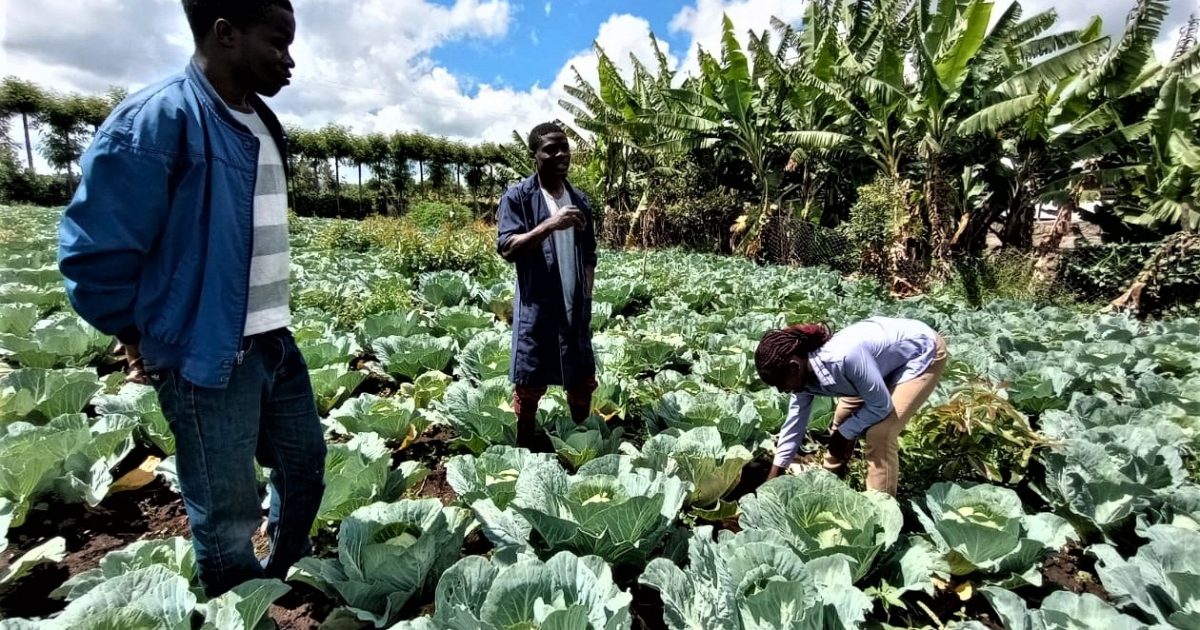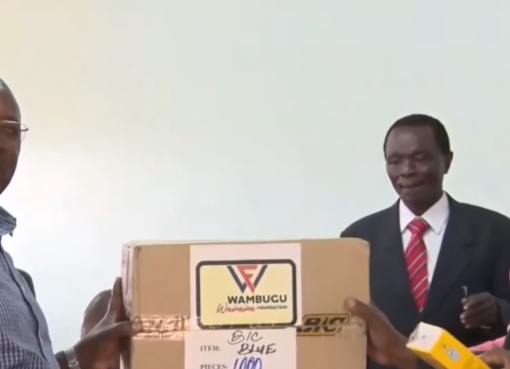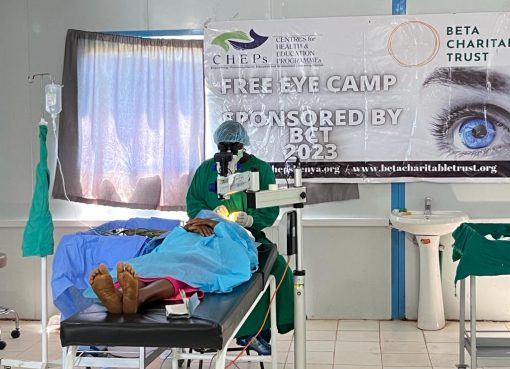Egerton University has launched a radio programme offering agricultural extension services targeting more than 200,000 small-holder farmers in Nakuru and neighbouring counties.
The initiative aim at providing need and demand based knowledge on how to improve on their food production, income and the quality of life.
Through live talk shows, phone call-in programmes, on location broadcasts, interviews with experts and airing of specialist programmes relevant to agribusiness, ‘Kilimo Bora Show’ is providing up-to-date information on agronomic techniques and skills to the rural farmers to help them grow food output by employing modern farming practices.
The three-hour programme which runs on Egerton Radio -101. 7 FM on a daily basis further enables the institution’s agriculture students to identify which farms to visit and offer practical extension services free of charges.
The “Kilimo Bora Show” was unveiled through sponsorship from Transforming African Agricultural Universities to Meaningfully Contribute to Africa’s Growth and Development’ (TAGDev) initiative. TAGDev is a partnership program between MasterCard Foundation and the Regional Universities Forum for Capacity Building in Agriculture (RUFORUM).
The Egerton University volunteer student extension officers have also been equipping farmers with information on improved seeds, timely planting, agroforestry, better harvesting methods, soil conservation, marketing, post-harvest handling and diversification.
One of the volunteer agricultural extension officer and a Master of Science Agricultural Business Management student at the University Maurice Simiyu said the radio show was a platform that provides farmers with access to accurate and real time information in terms of markets where they could sell their produce bridging the information gap.
‘Kilimo Bora Show’, he added provides an opportunity to farmers to participate and interact with each other and other relevant authorities like extension workers, crop and animal experts.
The program was also providing agriculture-related information such as weather forecast, prices of inputs such as seed and fertilisers, transport facilities, information on storage facilities and quantities and volumes traded at selected markets in the county, and across borders, Simiyu said.
The programming initiative, he added was set to help smallholder farmers who fall under the bracket of Small, Medium Enterprises (SMEs) improve on the standards and quality of production adding that the small-holder Farmers are producers of food and cash crops that account for 37 per cent of the country’s Gross Domestic Product (GDP).
“Through the show and field visits we have been teaching farmers to desalinate water at the farm, using agriculture lime since saline water causes stunted growth and destabilises the soil acidity levels”, said Simiyu.
According to Simiyu, extension services plays a big role in ensuring food security, citing Countries like the United States, Canada, Australia and Denmark, which he adds have very advanced agricultural sectors, courtesy of strong extension services.
He says outdated farming technologies hurt other sectors as funds meant for development are used to buy food to feed the hungry.
According to Simiyu lack of farmer training was one of the reasons Kenya found it difficult to address food insecurity and urged farmers to scale up the production of various food crops using modern farming methods.
“We can no longer rely on traditional methods of farming to meet the country’s feeding needs, it is high time all players in this sector employed modern practices that assure sustainable production,” he added.
Margaret Kiili, a Bachelor of Science, Animal Science student and a volunteer extension officer from Egerton University said reforms introduced by the World Bank through its Structural Adjustments Programmes of the 1980s led to the exit of thousands of public servants with Extension service workers being among the most affected, leaving a void that the volunteers are helping fill through ‘Kilimo Bora Show’ and subsequent field visits.
She says that unlike government extension services that were top to bottom, with agricultural officers promoting what they thought the farmer needed, the ‘Kilimo Bora Show’ and student volunteers are offering demand-driven information, which is timely and specific.
Ms Kiili expresses concern that the role of extension officers was increasingly being taken up by quacks on social media, misleading sales-persons from manufacturers of farm inputs and NGOs.
The volunteer has been engaging small-scale rabbit farmers on the best practices in rabbit rearing and value addition such as harvesting the animals’ urine that is an organic pesticide for vegetables.
She said with enhanced extension services that stressed on the need to maintain cleanliness in rabbit rearing cages, farmers have tripped their earnings through increased survival of newborns and a sharp decline on diseases and conditions such as coccidiosis, coughing, sneezing and watery eyes.
Due to scanty information, Ms Kiili notes that most farmers were found not to be practicing cage naming for ease of identification and record keeping.
“Courtesy of our radio show farmers now know that the rabbit cages should be well aerated as the animals survive well below 20 degrees Celsius,” she states
Research by Jomo Kenyatta University of Agriculture and Technology (JKUAT) indicate that the average extension officer to farmer ratio is 1:5000. This is way above the Food and Agriculture Organization requirement that each extension officer handles 400 farmers.
The study by JKUAT blames deteriorating extension service system on the officers sticking to obsolete skills in knowledge dissemination, their wanting skills and little passion at their job.
By Esther Mwangi and Charloth Chepkemoi




